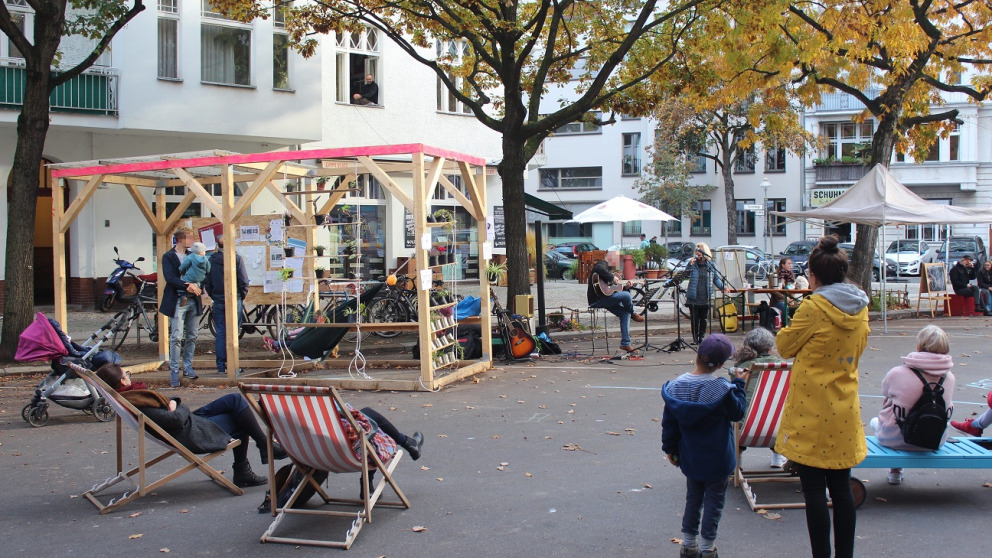Advancing Sustainability with Real-world Laboratories
18.03.2024
Real-world laboratories have become increasingly popular in sustainability research as a means to trial innovations for transformations under real-life conditions. In a special issue of the journal GAIA, RIFS scientists and colleagues offer an overview of the state of research on real-world laboratories.

Developing a better understanding of the impacts of real-world labs has become increasingly important given their growing role in research, policy, and funding. Real-world labs are often used in the context of research on sustainable urban development, the energy transition and nature conservation, but also in high-risk areas such as artificial intelligence, autonomous vehicles and basic medical care. A special issue of GAIA titled "Impacts of Real-world Labs in Sustainability Transformations" offers an overview of the impacts achieved by various real-world labs, explains strategies and mechanisms, outlines recent advances in methodology and examines some common challenges and potential solutions.
The special edition was co-edited by Niko Schäpke(RIFS Potsdam/University of Freiburg) and contains three articles with contributions from RIFS researchers.
Together with other researchers, Philip Bernert examines the broader effects of the long-term real-world laboratory "City of the Future Lüneburg” and proposes analytical categories for emerging impacts: transformative learning, novel structures of governance and the lab as a boundary actor for sustainability. The authors apply this framework to uncover the lab’s emergent impacts, reconstructing its design to achieve impacts and providing evidence for the impacts achieved.
Anke Kläver and co-authors shed light on the conflicts triggered by real-world laboratories aiming to support mobility transitions. On the basis of in-depth interviews, they categorize three types of conflict and uncover the influence of process design on their development. By highlighting the unintended negative effects that real-world labs can have, they bring issues of conflict, power, and legitimacy to the forefront.
A team of researchers led by Niko Schäpke shows how the leverage point perspective can be used to analyse the impact of real-world laboratories on sustainability transformations. Leverage points are specific points of intervention in a system. They provide an analytical tool with which interventions can be classified in terms of their potential (ranging from shallow to deep) to bring about systemic change. Drawing on this perspective, the authors examine two long-standing empirical case studies for real-world laboratories.
The special issue was inspired by the first annual conference of the German network of real-world laboratories for sustainability (Netzwerk „Reallabore der Nachhaltigkeit”). The network’s next conference will take place in April 2024.
Articles
- Klaever, A., K. Goetting, J. Jarass. 2024. Conflicts in real-world labs - Perspectives of critical and ambivalent residents on a temporary public space redesign project in Berlin. GAIA 33/S1: 72 – 79. https://doi.org/10.14512/gaia.33.S1.11
- Bernert, P., A. Weiser, T. Kampfmann, D. J. Lang. 2024. Impacts beyond experimentation - conceptualising emergent impacts from long-term real-world laboratory processes. GAIA 33/S1: 18-25. https://doi.org/10.14512/gaia.33.S1.4
- Schäpke, N., Beecroft, R., Wanner, M., Wagner, F., Rhodius, R., Laborgne, P., Parodi, O. 2024. Gaining deep leverage? Reflecting and shaping impacts of real-world labs through leverage points. GAIA 33/S1: 116-124. https://doi.org/10.14512/gaia.33.S1.17
- N Schäpke, F Wagner, R Beecroft, R Rhodius, P Laborgne, M Wanner, O Parodi (2024): Impacts of real-world labs in sustainability transformations: Forms of impacts, creation strategies, challenges, and methodological advances. GAIA 33/S1: 4-9 https://doi.org/10.14512/gaia.33.S1.2
Contact
